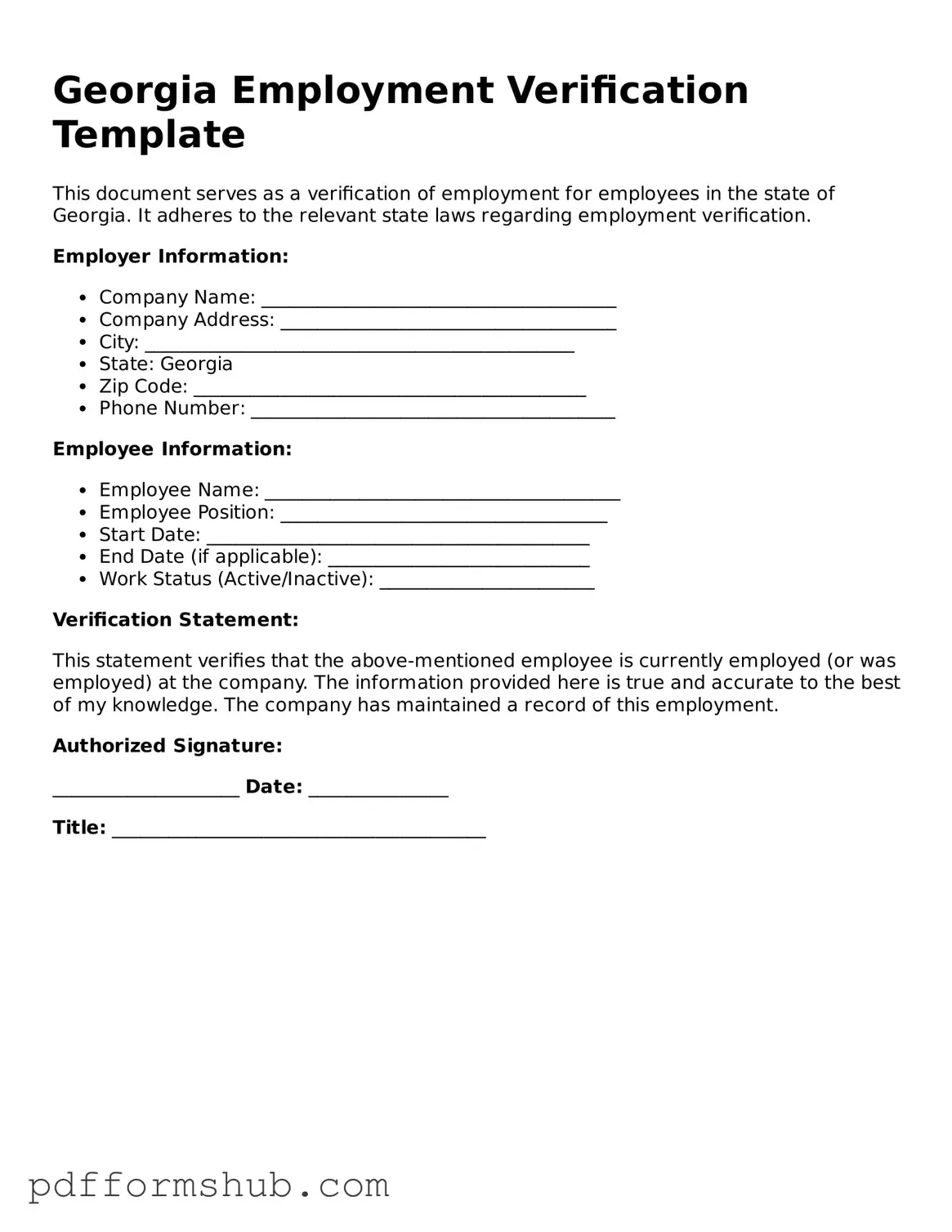Attorney-Verified Employment Verification Form for Georgia State
The Georgia Employment Verification form is a crucial document used to confirm an individual's employment status and income. This form plays an essential role in various situations, such as applying for loans, housing, or government assistance. Understanding how to accurately fill out this form can significantly impact your application process, so take the time to ensure it is completed correctly.
Ready to get started? Fill out the form by clicking the button below.
Customize Form

Attorney-Verified Employment Verification Form for Georgia State
Customize Form

Customize Form
or
Free PDF Form
Short deadline? Complete this form now
Complete Employment Verification online without printing hassles.